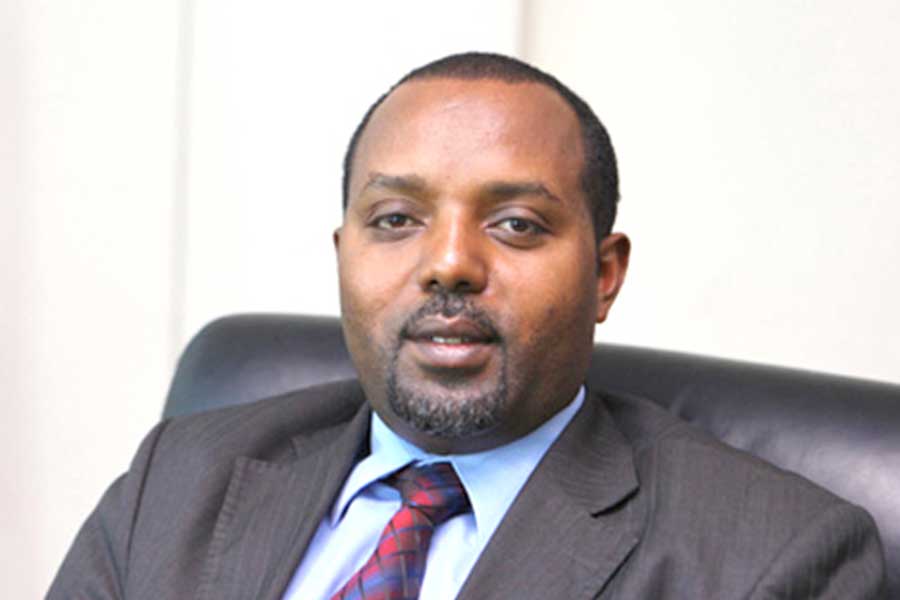
Radar | Aug 10,2025
Seven local and three Chinese companies have inked deals with the Ethiopian Roads Authority (ERA) for the construction of 1,022Km worth of road projects for a total of 25.8 billion Br. The projects were awarded to the companies days before the conclusion of the current fiscal year.
The companies were awarded the projects on June 11, 2020, with a ceremony that was held at the premises of the Authority. The companies are expected to deliver the projects within 18 months to four years, and the government will fully cover the total cost of the 15 projects out of existing budgetary resources.
Yotek Construction, DMC Construction, the Ethiopian Construction Works Corporation and Walabu Construction S.C., all local companies, secured two projects each, while Afework Gidey General Construction, Oromia Road Construction Enterprise and Defence Construction each secured one project.
China Railway Seventh Group secured two projects, while China Civil Engineering Corporation and China Wu Yi obtained one project each. The Chinese companies secured the projects that cover 36.5pc of the total cost.
Except for one, all of the projects will be upgrades of gravel roads to asphalt concrete. The remaining project is for a gravel road. All of the projects include structural works, drainage systems and bridges.
Among the projects, the longest one is the maintenance of a 178Km asphalt road that stretches from Dodola to Guba. Afework Gidey General Construction was awarded the project for 202.7 million Br. The shortest road is the construction of an 8.7Km bypass road in Metu town. Oromia Roads Construction Enterprise was awarded the project for 661.8 million Br.
The most expensive project among the 15 is a road project that extends from Dire Dawa to Shinile. China Civil Engineering Construction Corporation was awarded the 17.3Km project for 76.3 million Br a kilometre. The cheapest project is the construction of a 61.7Km gravel road from Guba to Konge. The Ethiopian Construction Works Corporation will build this road for 3.3 million Br a kilometre.
Most of the projects were retendered due to failures in the previous bidding processes, according to Habtamu Tegegne, director-general of the Authority, which has a 53pc failure rate when it comes to that critical step.
"We want the signed projects to be kicked off before the conclusion of this fiscal year," he said.
In this fiscal year, the Authority signed a total of 30 projects, including the latest ones, and it is planning to sign agreements for 16 more projects before the end of this fiscal year.
"Even though the country is currently in a very challenging situation," said Habtamu, "we're very committed to making sure that infrastructure development projects are going well."
The Authority, which has completed 40 projects in the last two years, is currently administrating 157 projects with a total cost of 195 billion Br. In this fiscal year, it launched the construction of 20 projects, 15 projects were finalised and 21 projects were entirely handed over to the Authority.
The awarded companies have three months of preparation time to camp at the site, move machinery, prepare raw materials and work on other preparations, according to Habtamu.
"By September, the construction works of all projects shall begin," he said.
Fikadu Gurmessa (PhD), a transportation geography lecturer at Addis Abeba University for more than a decade, believes that new roads are being constructed based on the principle of fulfilling the obvious and latent needs of the country.
Fikadu also says that the government should work on fairly distributing the projects across the regional states.
"The public investment fund should prioritise road construction for three-dimensional purposes," he said, "political, economic and military."
When roads are constructed, the government should also consider the cost-benefit analysis of projects since road infrastructure development is a costly investment and the country cannot afford to waste its scarce resources on projects that are not feasible, according to Fikadu.
PUBLISHED ON
Jun 14,2020 [ VOL
21 , NO
1051]

Radar | Aug 10,2025

Fortune News | Feb 01,2020

Radar | Jan 12,2019

Fortune News | Aug 07,2021

Radar | Oct 23,2021

Radar | Aug 29,2020

Radar | Dec 26,2020

Radar | Jul 27,2025

Radar | Dec 12,2020

Fortune News | May 09,2020

Dec 22 , 2024 . By TIZITA SHEWAFERAW
Charged with transforming colossal state-owned enterprises into modern and competitiv...

Aug 18 , 2024 . By AKSAH ITALO
Although predictable Yonas Zerihun's job in the ride-hailing service is not immune to...

Jul 28 , 2024 . By TIZITA SHEWAFERAW
Unhabitual, perhaps too many, Samuel Gebreyohannes, 38, used to occasionally enjoy a couple of beers at breakfast. However, he recently swit...

Jul 13 , 2024 . By AKSAH ITALO
Investors who rely on tractors, trucks, and field vehicles for commuting, transporting commodities, and f...

Oct 25 , 2025
The regulatory machinery is on overdrive. In only two years, no fewer than 35 new pro...

Oct 18 , 2025
The political establishment, notably the ruling party and its top brass, has become p...

Oct 11 , 2025
Ladislas Farago, a roving Associated Press (AP) correspondent, arrived in Ethiopia in...

Oct 4 , 2025
Eyob Tekalegn (PhD) had been in the Governor's chair for only weeks when, on Septembe...